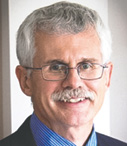In this series we offer brief introductions to the books of the Bible, including background, authorship, content, and application to the lives of today’s Christians.
Writing to the Ephesian Christians from his prison in Rome, the Apostle Paul referred to himself as “Paul, the prisoner of Christ Jesus for the sake of you Gentiles,” and “an ambassador in chains.” (Ephesians 3:1, 6:20). Ephesians is the first of the so-called “Prison Epistles.” Held in a Caesarean prison for two years, Paul invoked his right as a Roman citizen and appealed to Caesar. Then he spent another two years in captivity in Rome awaiting his trial before Caesar. Yet the Word was not bound. Paul was kept under guard in a rented house where visitors could freely come to see him, provide for him, and receive instruction. From there Paul wrote to the Ephesians, Philippians, Colossians, and Philemon sometime during the years A.D. 59-61. Even his guards regularly heard the Gospel, and many were converted.
The letter we know as Paul’s Epistle to the Ephesians appears to have been a general epistle sent to many congregations in Asia Minor, some of which Paul had never visited (1:15). Therefore, it does not have the personal notes you might expect if it had been written solely to a congregation where he had spent several years. It, along with Colossians and Philemon, was delivered by Tychicus. It is a wonderfully powerful and uplifting letter describing the glorious “mystery of Christ”—truths that are known only because God has revealed them through His apostles.
There are two parts to the Epistle: first Paul reveals the mystery of Christ, then he describes the profound effect it has on our lives.
The mystery of Christ includes several glorious truths: our salvation is complete and secure in Christ from eternity to eternity (1:3-14); we are united with Christ as His own body while He rules all things in heaven and on earth for our benefit (1:22-23); this is purely by God’s grace—for we were dead in sins, but God made us alive with Christ (2:1, 5). Even our faith is a gift from God. We are truly His workmanship, created in Christ to do good works (2:10). Now Jews and Gentiles become one unified body as fellow citizens and members of God’s household. We are “built together for a dwelling place of God in the Spirit.” (2:22)
This is so amazing and wonderful that Paul pauses twice (1:15-23, 3:14-19) to pray that we may fully understand this mystery and the power which works in us, and comprehend “the width and length and depth and height—to know the love of Christ which passes knowledge; that you may be filled with all the fullness of God.” (3:18-19)
After revealing this great mystery, Paul urges us to walk in a manner worthy of our high calling as God’s chosen and dearly loved children (4:1). Living together in “lowliness and gentleness, with longsuffering, bearing with one another in love.” (4:2) Christ gives us the gifts of pastors and teachers to build up the body of Christ that we may work together for the growth and edification of Christ’s body (4:9-16), while we turn away from the sins of the world by putting off the old man and putting on the new man which He created in us (4:22-24).
“Therefore be imitators of God as dear children. And walk in love, as Christ also has loved us and given Himself for us.” (5:1-2) All our relationships (husbands and wives, parents and children, employers and employees) become new and wonderful when we “walk as children of light.” (5:22 – 6:9)
Finally, God equips us for our battle with Satan and the “rulers of the darkness of this age” by providing us with the perfect armor to stand firm and the weapons for the fight (6:10-20).
Read this short letter for yourself, giving yourself time to meditate on the great privilege of being a part of the Body of Christ and imitators of God walking in the light of life.
It is a wonderfully powerful and uplifting letter describing the glorious “mystery of Christ”—truths that are only known because God has revealed them through His apostles.

is pastor of Saint Paul Lutheran Church in Vernon, British Columbia.

